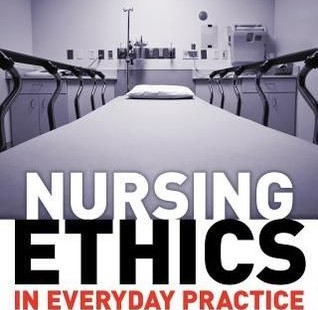
Table of Contents
Nurses are the bedrock of healthcare, providing essential medical expertise and compassionate care to patients in every setting. They are often the first point of contact for patients and their families, building trust and offering emotional support alongside critical clinical skills. Their role, however, extends far beyond technical proficiency; they constantly navigate a complex web of ethical considerations that profoundly impact their well-being and the quality of patient care.
In the fast-paced world of healthcare, ethical dilemmas are commonplace. They arise when moral principles collide, leaving nurses with difficult choices and no clear-cut answers. These dilemmas can be emotionally taxing, leading to moral distress and potentially impacting the quality of care provided. They can stem from diverse sources, including conflicting patient wishes, limited resources, cultural sensitivity, and legal obligations.
This exploration focuses on Ethical Nursing Practice, a critical field that examines the moral complexities nurses encounter daily. By delving into real-world case studies and fostering open discussions, we aim to equip nurses with the tools and knowledge to make informed decisions that uphold patient autonomy and the integrity of their profession. This journey through the ethical landscape of nursing will empower nurses to navigate these challenges with confidence and compassion, ensuring that patient well-being and professional ethics remain at the forefront of every decision.
Part 1: Foundational Concepts in Ethical Nursing Practice
Ethical Nursing Practice is built upon a foundation of core principles that guide nurses’ decision-making in complex situations. These principles, often called the pillars of bioethics, provide a framework for navigating ethical dilemmas in patient care.
- Autonomy: This principle emphasizes the patient’s right to self-determination, respecting their choices and decisions regarding their healthcare.
- Beneficence: Nurses are obligated to act in the best interests of their patients, promoting their well-being and seeking to benefit them.
- Non-maleficence: This principle dictates that nurses must avoid causing harm to their patients, whether through actions or inaction.
- Justice: Nurses are bound to ensure fairness and equity in distributing healthcare resources and treatment, striving for impartial care for all patients.
- Fidelity: Nurses uphold their commitment to patients, remaining loyal to their needs and sustaining their trust.
In addition to these principles, ethical frameworks provide broader guidelines for decision-making. Utilitarianism focuses on maximizing overall benefit for the greatest number of people, while deontology emphasizes the importance of adhering to moral rules and duties regardless of consequences.
Professional codes of ethics, such as the American Nurses Association Code of Ethics, further define the ethical standards expected of nurses. These codes provide guidance and accountability, promoting ethical practice and ensuring the highest standards of care for patients.
By understanding these foundational concepts, nurses are equipped to make informed, ethical decisions that uphold the values of their profession and ensure the best outcomes for their patients.
Part 2: Exploring Ethical Dilemmas Through Real-World Case Studies

Ethical Nursing Practice is not a theoretical construct; it’s a lived reality, confronting nurses with daily difficult situations. By examining real-world case studies, we can understand the complexities of ethical decision-making and develop strategies for navigating these dilemmas.
Case Study 1: Informed Consent in a Complex Situation
Imagine a patient with advanced dementia who needs surgery to address a life-threatening condition. The patient lacks the cognitive capacity to provide informed consent, and their family is deeply divided on the best course of action. Some family members advocate for the surgery, hoping to improve the patient’s quality of life, while others believe the risks outweigh the potential benefits, arguing for palliative care instead.
This scenario presents a classic dilemma in Ethical Nursing Practice. The patient’s diminished capacity complicates the principle of autonomy, which prioritizes the patient’s right to self-determination. The family’s wishes also hold weight, raising questions about the role of surrogate decision-makers and the ethical considerations of overriding their preferences.
Ethical Considerations:
- Patient Autonomy vs. Family Wishes: Navigating the patient’s right to self-determination while acknowledging the family’s role in decision-making requires careful consideration. When patients lack capacity, their previously expressed wishes (if documented) or designated healthcare power of attorney can provide guidance.
- Competency to Make Decisions: Assessing the patient’s cognitive abilities is crucial to determine their capacity to understand treatment options and make informed decisions.
- Informed Consent Process: Ensuring the patient (or surrogate decision-maker) understands the risks, benefits, and alternatives to the proposed treatment is paramount. This involves clear, concise communication, tailored to the patient’s level of comprehension.
Discussion Prompts:
- How can nurses ensure informed consent in complex situations where patients lack capacity?
- What strategies can facilitate open and honest communication between the medical team, the patient, and the family?
- When the family is divided, how can nurses advocate for the patient’s best interests while respecting the family’s values?
Strategies for Navigating This Dilemma:
- Involving Ethics Committees: Consulting an ethics committee provides a neutral third party to analyze the situation, offer guidance, and help the team reach a consensus.
- Facilitating Family Communication: Encouraging open and honest communication between family members can help them reach a shared understanding and a more unified decision.
- Providing Education and Support: Nurses can educate the family about the patient’s condition, treatment options, and the complexities of decision-making for those lacking capacity.
This case study highlights the intricate interplay of ethical principles and the challenges faced by nurses in upholding patient autonomy and ensuring ethical care. It underscores the importance of collaboration with other healthcare professionals, open communication, and a commitment to the patient’s best interests.
Case Study 2: End-of-Life Care and Conflicting Beliefs
A terminally ill patient, deeply devoted to their faith, expresses a strong desire to forgo life support, choosing comfort care over further medical interventions. However, their religious beliefs strongly advocate for preserving life at all costs. This conflict presents a complex ethical dilemma in Ethical Nursing Practice, balancing respect for patient autonomy against deeply held religious values.
Ethical Considerations:
Respecting Patient Autonomy vs. Religious Beliefs: Upholding the patient’s right to self-determination while respecting their faith requires careful consideration and sensitivity.
Right-to-Die vs. Preserving Life: This case highlights the ongoing debate about end-of-life choices and the tension between individual autonomy and the desire to prolong life.
Discussion Prompts
How can nurses support patients in making end-of-life decisions that align with their values and beliefs, even if those beliefs conflict with medical interventions?
What strategies can be employed to ensure open and compassionate communication with patients and their families about their faith-based perspectives on end-of-life care?
Strategies for Navigating This Dilemma:
Involving Spiritual Care Providers: It can be invaluable to connect the patient with a spiritual care provider who can offer guidance and support within the context of their faith.
Facilitating Patient-Family Discussions: Encouraging open dialogue between the patient, family, and medical team can help explore all perspectives, clarify values, and find common ground.
This case study demonstrates the crucial role of empathy and cultural sensitivity in Ethical Nursing Practice. Nurses can provide compassionate and dignified care during this challenging time by respecting patients’ religious beliefs while upholding their autonomy.
Case Study 3: Resource Allocation and Scarcity
In the face of a critical shortage of ventilators, a hospital must make a difficult choice between two patients with equally urgent needs. This scenario presents a heart-wrenching ethical dilemma in Ethical Nursing Practice, challenging nurses to navigate the complexities of resource allocation and ensure fairness in decision-making.
Ethical Considerations:
- Allocation of Scarce Resources: The need to prioritize care when resources are limited raises crucial questions about fairness and justice.
- Fairness and Justice in Decision-Making: Ensuring that allocation decisions are based on objective criteria, such as medical need and prognosis, is paramount to avoid bias and ensure equitable distribution of resources.
Discussion Prompts:
- How can nurses advocate for ethical allocation policies that prioritize patient needs and uphold the values of justice and fairness?
- What strategies can be implemented to ensure transparency and accountability in resource allocation decisions, promoting trust and understanding among healthcare professionals and patients?
Strategies for Navigating This Dilemma:
- Utilizing Triage Protocols: Implementing well-defined triage protocols based on established medical criteria can help guide allocation decisions and ensure a consistent approach in crisis situations.
- Promoting Transparency in Decision-Making: Openly communicating the rationale behind allocation decisions to all stakeholders can build trust and foster a shared understanding of the challenging circumstances.
This case study highlights the critical importance of clear ethical guidelines and transparent decision-making processes in Ethical Nursing Practice, particularly when resources are scarce and difficult choices must be made.
Case Study 4: Cultural Sensitivity and Pain Management
A nurse treating a patient from a different cultural background encounters a conflict regarding pain management approaches. The patient, adhering to their cultural beliefs, expresses reluctance to accept certain pain medications. This scenario presents a critical issue in Ethical Nursing Practice, requiring a careful balance between respecting cultural beliefs and providing optimal medical care.
Ethical Considerations:
- Respecting Cultural Beliefs vs Providing Optimal Medical Care: The need to honour the patient’s cultural values must be balanced against the obligation to provide effective pain management and ensure their well-being.
- Fostering Trust in the Patient-Nurse Relationship: Building a trusting relationship with the patient is essential to navigating cultural differences and ensuring effective communication.
Discussion Prompts:
- How can nurses become culturally competent in their practice, recognizing and respecting diverse beliefs and practices around pain management?
- What strategies can be employed to effectively communicate with patients from different cultural backgrounds and ensure they feel heard and understood?
Strategies for Navigating This Dilemma:
- Open Communication: It is crucial to encourage open communication with patients to understand their cultural beliefs and perspectives regarding pain management.
- Exploring Cultural Beliefs: Researching cultural beliefs around pain management and alternative approaches can help the nurse tailor care to the patient’s needs and preferences.
This case study emphasizes the importance of cultural sensitivity in Ethical Nursing Practice. By actively seeking to understand and respect cultural differences, nurses can build Trust, promote effective communication, and provide culturally competent care that honours the patient’s values and beliefs.
Part 3: Fostering Open Discussion and Collaborative Decision-Making
Ethical Nursing Practice thrives on open communication. Nurses must engage patients and families in clear, honest dialogue, ensuring their values are understood and respected. Open communication with colleagues fosters a culture of trust and support, where concerns can be raised and solutions explored collectively.
Ethics committees and institutional support systems play vital roles in navigating complex ethical dilemmas. These resources provide guidance, consultation, and a safe space for nurses to voice concerns and seek assistance.
Strategies for collaborative decision-making involve active listening, respectful dialogue, and seeking consensus through careful consideration of all perspectives. This process should be guided by ethical principles, acknowledging the rights and wellbeing of all involved.
Facing ethical challenges can be stressful. Nurses must prioritize self-care and stress management techniques to maintain emotional wellbeing. This includes seeking colleague support, engaging in personal activities, and utilizing available resources for emotional support. By prioritizing open communication, seeking guidance, and prioritizing self-care, nurses can navigate ethical challenges effectively and uphold the highest standards of ethical nursing practice.
Part 4: The Evolving Landscape of Ethical Issues in Nursing

The field of Ethical Nursing Practice is constantly evolving, as advancements in healthcare technology and societal values present new ethical challenges. From the widespread use of genetic testing to the increasing role of artificial intelligence in medical decision-making, nurses are confronted with emerging ethical considerations that demand careful analysis and reflection.
The rapid pace of change necessitates staying informed about evolving ethical codes, guidelines, and best practices. Professional organizations like the American Nurses Association (ANA) are crucial in providing guidance and shaping ethical standards in the face of new technologies and evolving social norms.
Ethical Nursing Practice requires continuous learning and critical thinking. Nurses must engage in ongoing professional development, stay abreast of emerging ethical issues, and engage in thoughtful dialogue with colleagues to navigate complex ethical dilemmas. By embracing continuous learning and a commitment to moral reflection, nurses can ensure that their practice remains grounded in the principles of patient autonomy, beneficence, non-maleficence, justice, and fidelity, even as the healthcare landscape continues to evolve.
Ethical Nursing Practice is the cornerstone of compassionate and effective healthcare. By examining real-world case studies and fostering open discussion, nurses can sharpen their ethical decision-making skills and confidently navigate complex situations. Nurses play a critical role in upholding patient well-being and upholding the highest ethical standards in healthcare. As you embark on your nursing journey, remember that Ethical Nursing Practice is a lifelong pursuit of excellence. Nursing students, if you need help with your nursing queries and assignments, visit Nursingpapers website for expert assistance.







